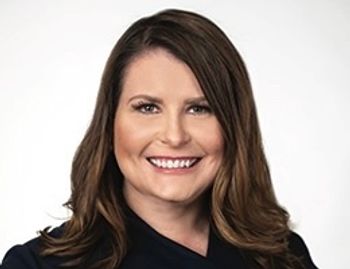
The future of healthcare ‘is about the consumer'

Patients have higher expectations, and hospital executives say the industry must focus more on the customer experience. It was a recurring theme at the American Hospital Association Leadership Summit this week.
The future of healthcare involves thinking much more radically about serving the consumer, hospital leaders say.
Health system executives stressed the importance of improving the consumer experience repeatedly during the American Hospital Association Leadership Summit this week
Kerry Heinrich, president and chief executive officer of Adventist Health, said his system is looking at providing a better experience.
“We have only scratched the surface of consumerism and how it will impact how we deliver healthcare,” Heinrich said at a seminar on hospital leadership.
“Our strategic focus is very much driven by, how do we be more consumer-friendly to the patient?”
Consumers have higher expectations from health systems, hospital leaders and industry analysts say. Increasingly, patients want the same ease in using healthcare services they have in other facets of their lives.
“Let’s look at everything from the standpoint of the consumer,” Heinrich said.
“How to use technology to make it better for the consumer,” he said, adding, “How do we make it more user-friendly?”
Cliff Megerian, chief executive officer of the
“It means measuring the quality of care from the phone call all the way to the bill,” he said.
- Related story:
‘Focus on our culture and our people’
Health systems need to act with urgency in improving the consumer experience, since hospitals are facing growing competition in the healthcare market, said Mark Sevco, president of UPMC Hospitals.
Responding to a question about the hospital of the future, Sevco said, “It’s about the consumer. It’s about the mobile device. It’s scheduling online.”
“We have to move fast to make it happen,” he said.
Hospitals and health systems are now battling Amazon and CVS. Amazon announced it is acquiring One Medical, the primary care organization, in a $3.9 billion deal.
Competitors such as Amazon see a market to reach patients who want more choices and convenience, said Anu Singh, managing director of Kaufman Hall’s mergers and acquisitions practice. Health and hospital systems have some work to do on providing consumer-friendly experiences, he told Chief Healthcare Executive.
“Health systems in their communities still retain a brand and reputation presence for, when things go wrong, that’s where you go,” Singh said.
“Where more work could be done, is, when you come see us for the 4th time in a year, we’re not going to hand you a clipboard and a pen," he added.
Kevin Sowers, president of the Johns Hopkins Health System and executive vice president of Johns Hopkins Medicine, said hospitals need to figure out new ways of delivering care in the way consumers want, including ways to use technology and deliver care in the home.
“They’re going to expect something out of us they’ve never seen before,” Sowers said.
In the future, many patients won’t want to come to a big clinic.
Health systems are going to be delivering more care outside the four walls of the hospital, including telemedicine and home-based acute care, leaders agreed.
“Movement from inpatient to outpatient is going to be a huge movement,” Sevco said. “Hospital at home will be huge."
“The future of the hospital is going to look very different,” he said.
The American Hospital Association has named improving the consumer experience as one of the core facets of its 2022-24 strategic plan, said
Hospital systems need to think about consumers when allocating capital budgets, Heinrich said. It involves capitalizing on systems, software and people that make a difference in improving the consumer experience.
“It requires you to think about re-engineering what you do,” Heinrich said.
It’s one thing to allow a patient to schedule an appointment with a provider on the phone., but the technology must be designed to be easy to use, and relevant to everyday people.
For instance, if a patient needs to schedule a CT scan, it doesn’t make much sense to ask if the scan will be with or without contrast. “The patient doesn’t know,” he said.
Healthcare services must be both efficient and relevant, Heinrich said. “It requires you to think about re-engineering what you do.”
Whether it’s scheduling, care delivery or billing, hospitals and health systems need to radically reconsider the way they do business with a greater focus on improving the experience for consumers, health executives say.
“The consumer expects you to think about them and what’s good for them,” Heinrich said.






















































































